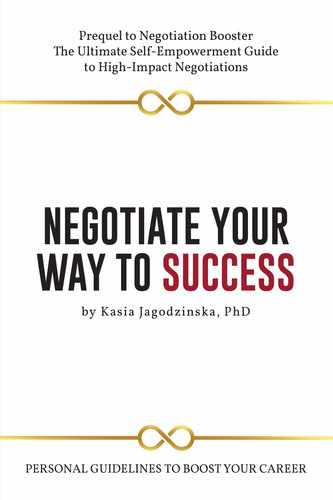Learn to Live One Day at a Time
THE initial title planned for this chapter was “You do not need to know where you will be in five years.” It was triggered by the memories of the numerous job interviews during which I was asked a variation of the cliché question about where I see myself in the next x number of years. There are at least two things that are wrong with this query. Firstly, it forces the interviewee to engage in creative storytelling (aka lying). The apparent answer “in your job” is most likely not the one they are looking for. Secondly, it invites the candidate to immerse in an illusionary belief that we are the masters of our future. “If you want to make God laugh, tell him about your plans” (Woody Allen). An interviewer who poses such questions may be perceived as either unethical or delusional, or perhaps they simply enjoy a good joke. Not necessarily do they merit to be your employer of choice.
The COVID-19 crisis led to a worldwide meltdown of the health, social connectedness, and the economic system. The uncertainty and loss of sense of control caused havoc on the individual level. It stripped people of the illusion of being the shapers of their own destiny. Due to recurring lockdowns, regulations changing overnight, and the introduction of new (and often confusing) restrictions, it became impossible to plan what one would be doing the next day or week, not to mention in several months. From a collective mindset oriented on long-term planning, people had to abruptly learn how to live one day at a time. The established social norm of well-organized and durable time horizons collapsed. Ironically, being well-organized and dependent on a fixed schedule proved to be a hindering factor.
The pandemic shed light on an interesting phenomenon—the inability to live in and for the moment. Had this ability existed, people would not have gotten so agitated about the sudden loss of command over the long-term angle. After all, the moments that life consists of did not change; only the longevity aspect of their sum did. More importantly, did we lose the sense of control or just an illusion of it? Reflecting on this question might put some things in perspective and help gain a different outlook on the power of moments.
One of the aspects of personality psychology is the concept of locus of control developed by Julian B. Rotter in 1954. According to his theory, people either have an external or internal locus of control. Externals believe that their life is governed by fate, destiny, and events outside of their immediate scope of control. Conversely, internals see themselves as the artisans of their own fortune. Logically, this would seem like a desirable trait for managers and high-profile business executives. However, in times of crisis, externals might find it easier to cope with unexpected change.
Although giving up on rigid long-term planning is recommended, it is not enough for leading a happy (and successful) life. You need to learn how to savor each day, one at a time. Yes, letting go is a legitimate skill. This does not mean that you should cease all efforts to develop and grow both professionally and personally. You do not need to know where you will be in x years, but you do need to establish patterns of behavior that will bring you closer to where you would like to eventually end up.
Achieving goals requires discipline and order. Sadly, setting goals is not a guarantee for what life has in store for you. The secret to success lies in finding an equilibrium between choosing one course and allowing yourself to joyfully go with the flow of life. Add this balancing act to your portfolio of skills to become a more valuable asset to your own business or to a company that merits you.
Guideline 14—Key Takeaways |
|
1. |
Do not attempt to plan where you will be in x number of years. |
2. |
Learn to let go by adopting a flexible approach to life. |
3. |
Live in the moment but do not get locked in it. |
4. |
Do not take anything for granted. |
5. |
Develop patterns of behavior that will bring you closer to your overall goals. |
